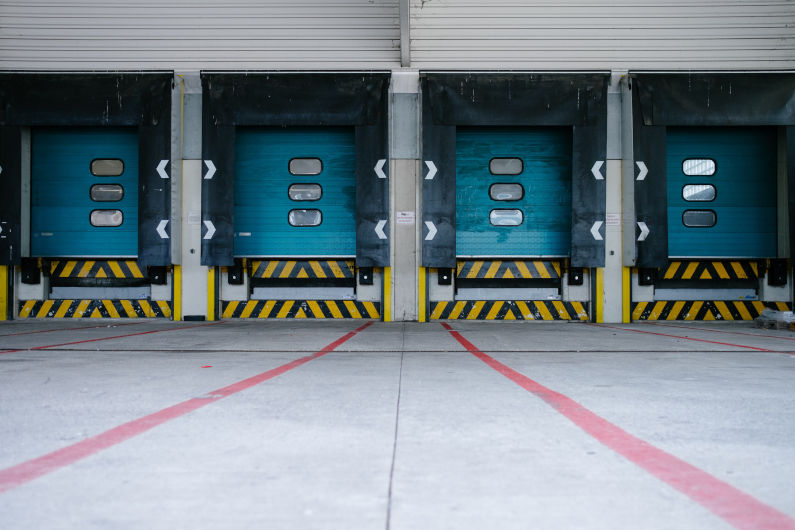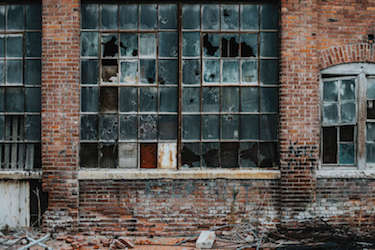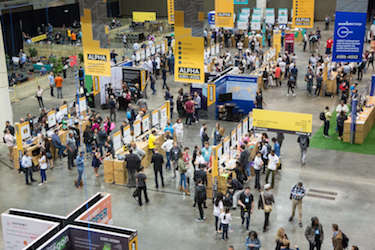Will There Really Be a “New Normal” for Supply Chains?



Table of Contents
“You must be shapeless, formless, like water. When you pour water in a cup, it becomes the cup. When you pour water in a bottle, it becomes the bottle. When you pour water in a teapot, it becomes the teapot. Water can drip and it can crash. Become like water my friend.”
― Bruce Lee
It feels as if the ground importers stand on has been constantly shifting lately. First, it was the trade war and the ongoing attempt by the US to decouple from China. Then it was the pandemic that has made drastic changes to all of our lives in 2020.
It’s hard to say what’s going to come next.
That’s what makes the immortal words of Bruce Lee so relevant today. It’s important for those managing supply chains to adopt a fluid approach to their work — to shift and change according to the circumstances.
The “new normal” is a term that has been thrown around quite a bit recently, and many have pondered what the new normal might be for supply chains once all the dust settles.
But will there ever really be a new normal?
The reality of the world we live in is that things are always evolving and that there is no final destination. It’s just that, right now, many things are changing at an accelerated rate.
So, what changes have we seen so far and what else might happen as we progress into the future?
Importers Have Shifted Their Eyes Away From China
It used to be that China was always the default assumption and the first place you would look to find a new supplier.
How will things develop from here?
The early stage of the pandemic made a lot of supply chain managers reconsider their one-country sourcing approach. For example, taking a China +1 or China +2 approach became more attractive. In actuality, though, this trend was already in place before the trade war started — it was just happening more slowly.
The combination of a trade war and a pandemic has accelerated it.
Freight Prices Have Been Unpredictable
Earlier this year, airfreight prices skyrocketed — and they have since come down — but despite coming down, they are much higher than what they were before Chinese New Year.
This means that if you’re looking at airfreight as an option, don’t rely on historical pricing to guide you. Be prepared for changes.
Meanwhile, the price of ocean freight has been comparatively stable, but it’s important not to take that for granted either. You should always verify rates and not expect them to stay the same forever.
Travel Restrictions Can Come Up Unexpectedly
The big news right now is that the EU decided to open itself up to travel from a specific list of countries — and that the US was not included on that list.
Keep in mind, though, that aside from the restrictions that make the news in Western countries, there are also regional travel restrictions throughout the world that you might not hear about.
For example, we recently became aware of travel restrictions in the Mumbai Metropolitan Region (MMR) of India, where inter-district travel has been restricted, and non-essential travel has been limited to 2km from people’s homes.
This type of story might not hit the Western press, but for importers working with Indian manufacturers, it is relevant.
It’s important to be aware of the issues that might affect your business and adapt to them as they come.
Trade Shows, Conferences, and Live Events Have Gone Virtual
For the time being, the pandemic has made it basically impossible to put on live, in-person events and trade shows.
No one really knows.
Perhaps the industry will trend toward single-day networking events only, with in-person, multi-day conferences becoming a thing of the past. This might allow for some human connection, without an excessive amount of it.
Technology has advanced, and with more exposure to these virtual events, they will probably improve and people might get used to them.
We have to adapt to these and other developments and do what Bruce Lee invited us to do in the early ‘70s — to become like water.
Become Like Water My Friend
As the world changes at an accelerated pace, it’s more important than ever to adopt a fluid and flexible approach to business.
When it comes to supplier management, we recommend you stay in touch with your China suppliers, regardless of whether or not you are looking at different options or won’t be placing any orders with them for the time being. Keep a pulse on what’s happening and keep the relationship fresh.
As you are comparing your options down the road, this might benefit you — for example, if they offer you more favorable terms.
Consider new product ideas that you haven’t considered before and be creative. No one really knows what the “new norm” is because the state of things is constantly changing.
Keep your options open and keep your knowledge and skills up to date.
In that vein, we recommend you read the following white paper on how to find the right balance between price and quality — a skill that’s always useful.
Free Guide
Stop Making the same silly quality mistake!
- Learn the secrets to “high” quality products – that save you money!
- Never be confused again by complicated quality data
- See the steps to increase customers’ confidence in your brand

AQL Inspections 101: How They are Conducted
Authors


